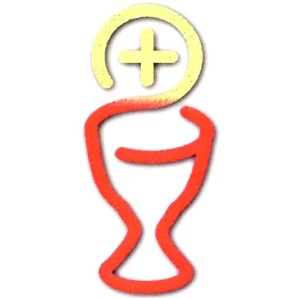This article first appeared in the April 2017 edition of our parish magazine.
I was first introduced to “I Am the Great Sun” at a Manchester Chorale rehearsal in Autumn 2016. We were preparing a mainly sacred program of music for a tour to Antwerp, where all our our performances would be in churches. Even though I was concentrating on sight singing complex harmonies and powerful words, it was a truly spine tingling experience.
The text comes from a 1957 poem by Charles Causley, which was inspired by the words on a Normandy crucifix of 1632. The poem was recently set to music by Jussi Chydenius.
I am the great sun, but you do not see me,
I am your husband, but you turn away.
I am the captive, but you do not free me,
I am the captain but you will not obey.
I am the truth, but you will not believe me,
I am the city where you will not stay.
I am your wife, your child, but you will leave me,
I am that God to whom you will not pray.
I am your counsel, but you will not hear me,
I am your lover whom you will betray.
I am the victor, but you do not cheer me,
I am the holy dove whom you will slay.
I am your life, but if you will not name me,
Seal up your soul with tears, and never blame me.
The piece begins with half the soprano section singing a quiet drone: I am the great sun, I am the great sun but you do not see me, you do not see me. This is repeated a number of times, with other section singers gradually joining in. To the audience listening instead of reading, it could just as easily – and just as poignantly – be “I am the great Son but you do not see me”. The whole poem is a sad indictment on contemporary society that deliberately chooses over and over again to turn away from faith in God, Jesus and the Holy Spirit. The music builds through a slow but steady crescendo to the climax: I am your life, but if you will not name me, seal up your soul with tears and never blame me. The message is clear. We have freedom of choice, and therefore must accept responsibility for their consequences.
Wikipedia tells us that the Koine Greek term Ego eimi (Greek Ἐγώ εἰμί, pronounced [eɣó imí]), literally means “I am” or “It is I”. In John’s gospel, Jesus makes seven I Am statements about himself, many of which are echoed in Causley’s poem:
- I am the Bread of Life (John 6:35)
- I am the Light of the World (John 8:12)
- I am the Door (John 10:9)
- I am the Good Shepherd (John 10:11,14)
- I am the Resurrection and the Life (John 11:25)
- I am the Way and the Truth and the Life (John 14:6)
- I am the Vine (John 15:1,5)
This is a truly powerful blend of words and music. I strongly urge you to listen to them, repeatedly, during Holy Week, and ponder the choices made collectively by man through the centuries, and by each of us individually through our lifetimes. But take heart. All is not lost. On Easter Day we celebrate the Risen Lord in our lives.
You can listen to “I Am the Great Sun” here
Carol P
